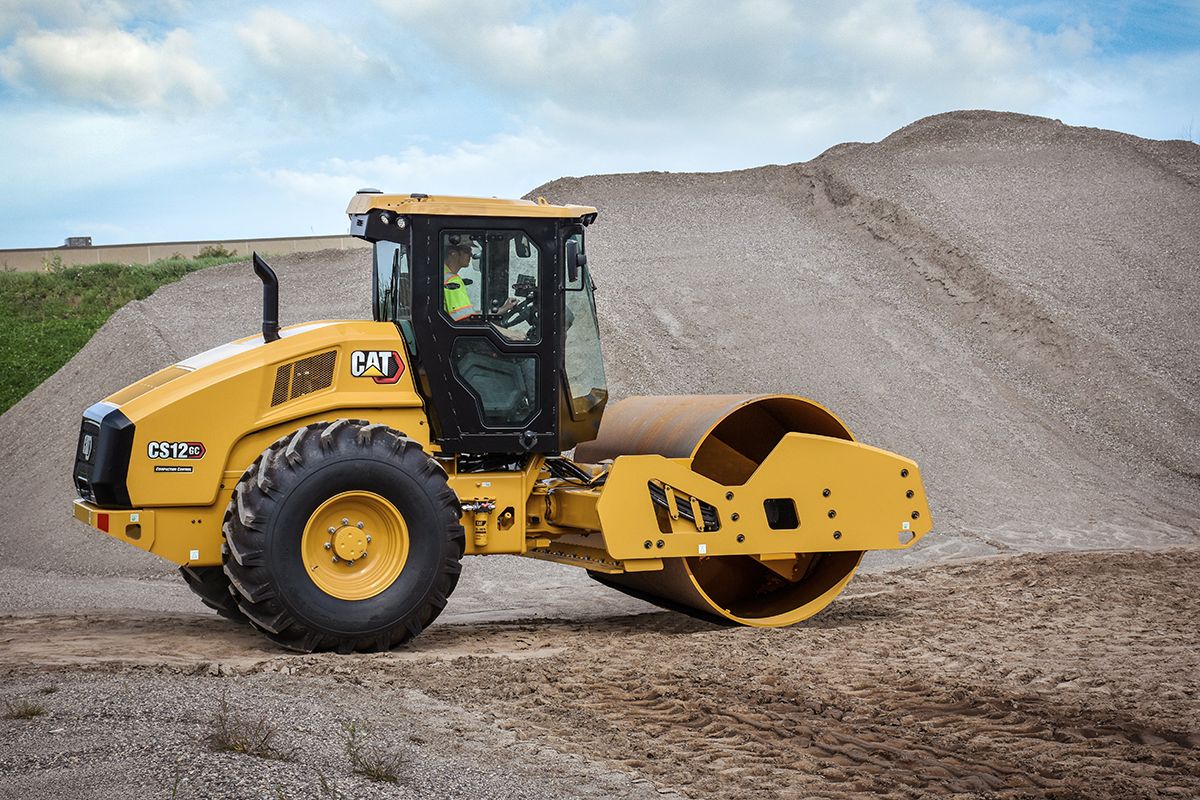Compactors: uses and tips
- compattatori

14 May, 2024
In order to prepare the natural ground levels and make them suitable for the requirements of road or motorway works, machinery will be needed for various processes such as clearing, filling and excavation. This will make the construction site a success and ensure efficiency, ergonomics and proper slope.
What type of machinery? Compactor machines. In this post we tell you what they are, the types that exist, what their uses are depending on the type of work, how to choose the best one according to your needs and the benefits they will provide.
Let's get started.
What are compactors?
Compactors are self-propelled machines on wheels that are made up of different rollers that, as the name suggests, help to compact the soil quickly and homogeneously.
Its main function is to densify the soil through its own weight and a dynamic load that is produced by means of an eccentric mass that rotates around the roller axis, thus producing a vibration.
This machinery is also known as a steamroller, road roller or static compactor.
Types of compactors
There are different types of compactors that can be used on road or motorway works. Some that we highlight are:
-Vibrating soil compactors
They transmit the compaction force to the ground by vibrating a mass, which can be a cylinder or an isolated block. In addition, they combine static and dynamic forces, almost completely eliminating internal friction between soil particles and improving compaction.
They are durable and reliable and offer great compaction, speed and slope climbing performance to increase productivity in a wide range of applications.
-Tandem vibrating rollers
They can be used to compact thin layers of stable soil, which are ideal compaction equipment for rolling asphalt surfaces.
In addition, the large double drums are easy to configure to increase compaction efficiency in any type of mix.
-Soil compactors
Special four-wheel drive soil compactors maximise soil density through a tamping wheel tip design, machine weight impact and higher speeds for optimum penetration.
Notably, they are capable of easily compacting all soil materials, such as sand, gravel, crushed stone, concrete, and paving stones.
-Waste compactors
They compress the material and reduce the volume of waste. They are used in waste management and construction to handle and dispose of different types of waste. These machines provide a number of benefits such as space saving, cost reduction and efficient waste disposal.
They play a crucial role in waste management and in the construction industries, helping to reduce the volume of waste.
Rules for the use of compactors
Compactors are essential equipment for road construction projects, both on asphalt surfaces and on road bases. They are also used to compress cohesive surfaces, such as clays.
Even so, there are risks in the handling of this type of machinery, so it is important to take preventive measures and take into account some considerations such as:
-Check the machine and ensure that it is in good condition before use.
-Check the lubricant level of the compactors.
-Use compactors that have anti-rollover cabin protection.
-The machine must be fitted with properly functioning reversing lights and horn.
-For safety reasons, the machine must be equipped with a fire extinguisher.
-Do not make adjustments while the machine is moving.
-Do not release the brakes without first applying the brake blocks.
-The machine must always move in a straight line.
-Wear hearing protection when using the machine.
-Refuel after the engine is switched off.
How to choose the best compactor
It is important to choose the best type of compactor for your construction project. Therefore, you should consider the following points:
-The type of work to be carried out. Building a new embankment is not the same as building on existing soil.
-The duration of the project. Depending on the length, you can buy or rent a compactor.
-The type of soil to be compacted. For example, fine-grained sand will need a different roller than clay. Or, in the case of laying asphalt, you should consider whether a static or vibrating roller is better.
-Machinery performance. Optimum performance will be important to reduce any compaction costs that may arise.
Knowing how to choose the best compactor can make a difference in the result of a work.
Benefits
But what are the benefits of using a compactor?
-Increases the ability to carry heavy loads. By using a compactor, soil particles will be compressed and strengthened, which allows soils to support heavy loads without crumbling.
-Elimination of empty spaces. It applies force to the ground and eliminates any empty spaces that may exist. This will increase the density and stability of the soil and prevent deformations that could pose a risk to the construction site.
-Optimises drainage. Land drainage will be more controllable, i.e. water seepage will be reduced and runoff will be prevented, averting it from becoming unstable and fragile.
-Prevents swelling. By eliminating empty spaces in the soil layers, the swelling and instability of the ground will be avoided.
The use of compactors will benefit both your equipment and the result obtained in the construction work carried out.
